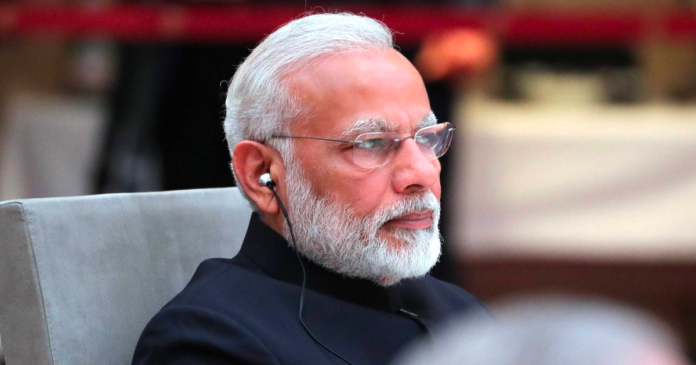India says the decision to stop issuing visas for Canadians is temporary but necessary due to “security threats” that were disturbing its diplomatic missions in Canada.
The move is the latest in an escalating feud between the two countries that began after Prime Minister Justin Trudeau accused the Indian government of having involvement in the June assassination of Sikh activist Hardeep Sing Nijjar, in Surrey, B.C.
“Important notice from Indian Mission: Due to operational reasons, with effect from 21 Sept. Indian visa services have been suspended [until] further notice,” wrote the BLS Indian Visa Application Center in Canada in a statement on Thursday.
The suspension of visa services also “applies to Canadians in a third country,” according to a statement published by the Indian government.
“There have been threats made to our high commission [embassy] and consulates in Canada,” said a foreign affairs ministry spokesman in Delhi, according to the BBC.
“This has disrupted their normal functioning. Accordingly [they] are temporarily unable to process visa applications. India is looking for parity in rank and diplomatic strength between the diplomatic missions of the two countries. This is being sought because of Canadian diplomatic interference in our internal affairs.”
Canada had announced several hours earlier that it would be reducing its personnel in India due to threats they had received via social media.
“In light of the current environment where tensions have heightened, we are taking action to ensure the safety of our diplomats,” a statement said.
Nijjar was an outspoken activist for Sikh separation in India and was murdered in Surrey, B.C. in June.
On Monday, Trudeau alleged in the House of Commons that the Indian government had a hand in Nijjar’s murder based on intelligence his government had received, however no such evidence has been presented to the public.
The Indian government called Trudeau’s allegations “absurd” and denounced them as false the following day.
The allegations first led to the expulsion of senior diplomats from both countries, beginning with Canada.
The Indian government then updated their travel advisory for Indian nationals and students living in Canada, warning them to exercise with the “utmost caution” due to “growing anti-India activities and politically-condoned hate crimes.”
The Canadian government then retaliated by updating their travel advisory for Canadians traveling to India, telling them to exercise a “high degree of caution” while there, due to the “threat of terrorist attacks.”
Historically, Canada and India have had close ties through trade and immigration.
There are currently 1.4 million people of Indian origin living in Canada, more than half of whom are Sikhs, according to the 2021 census.
Indian international students also make up 40% of all foreign students studying in Canada.
Canadians account for a large portion of tourism in India, visiting more than most other countries, only behind Bangladesh, U.S. and U.K.





















